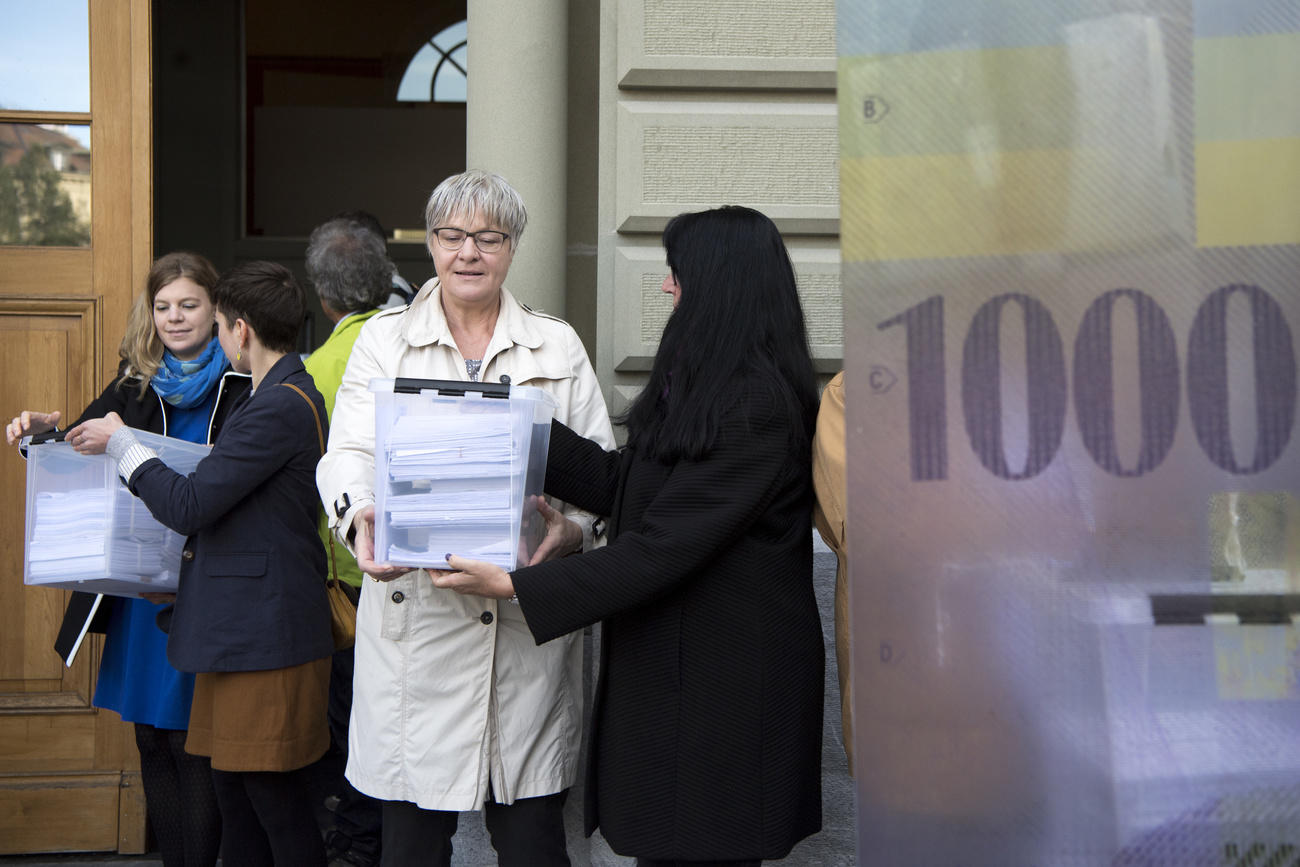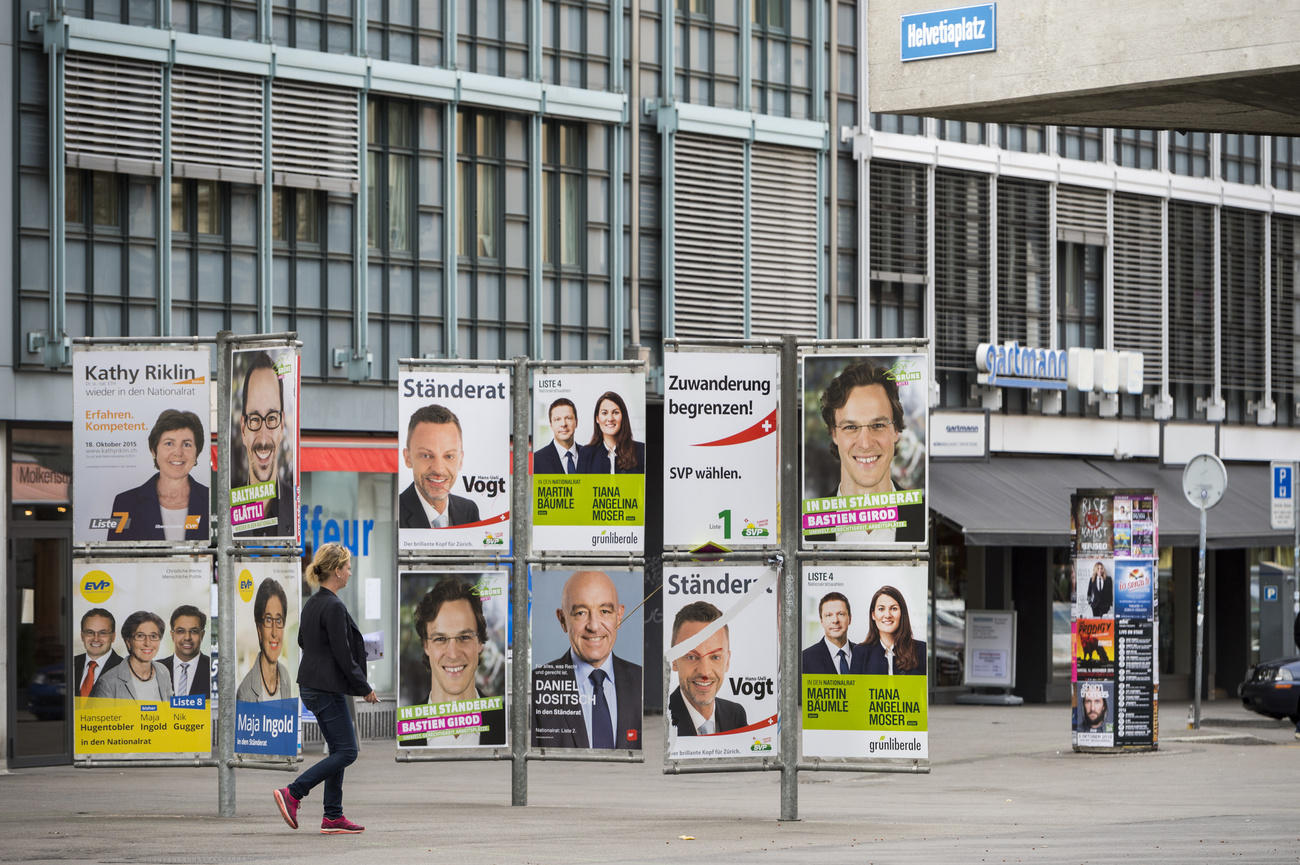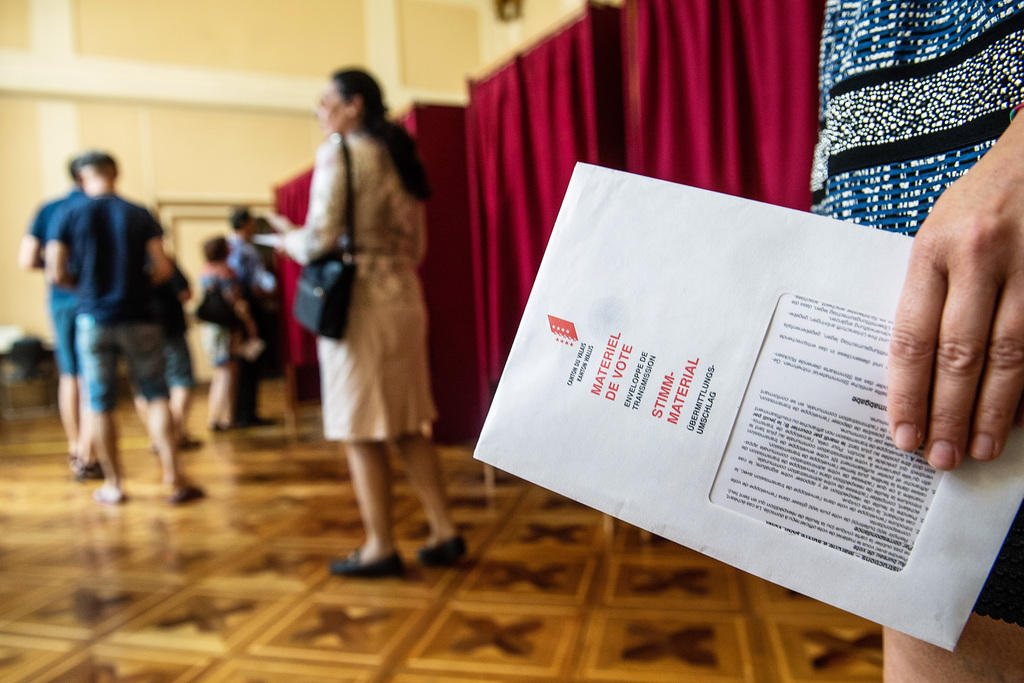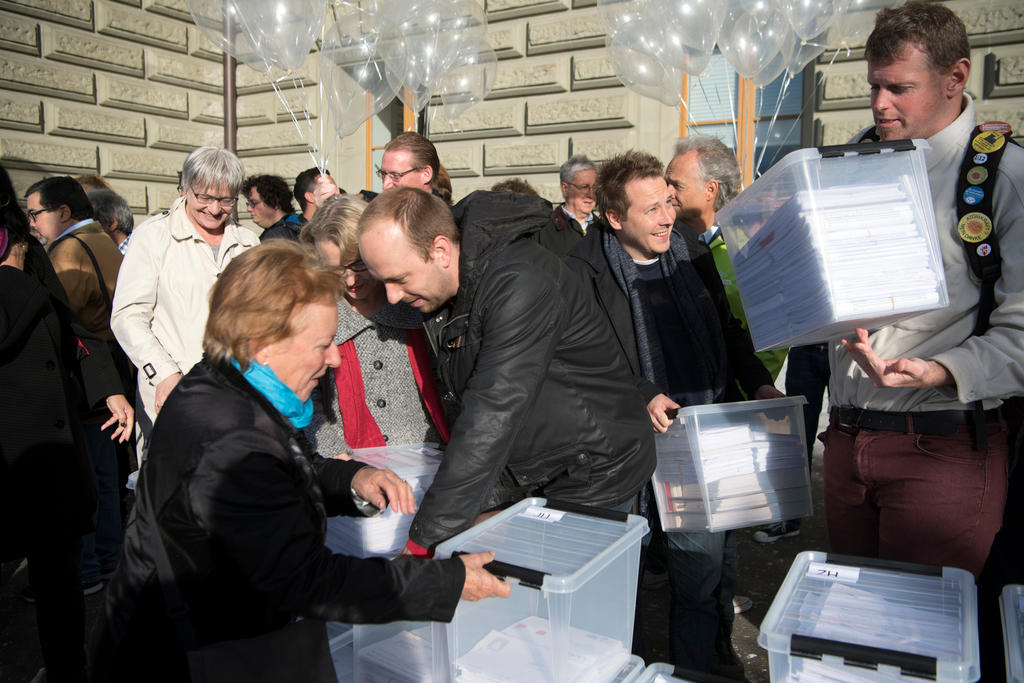Parliament takes small step towards more transparency

The Swiss Senate has rejected a people’s initiative demanding more transparency around financing in politics. As an alternative, it proposes a softer reform. Is this enough?
The people’s initiative, which was handed in in October 2017 was rejected by 32 votes to 12 in the smaller parliamentary chamber on Monday.
The proposal aims to tackle Switzerland’s reputation as one of the least transparent countries in Europe when it comes to political financing – something for which it has been criticized by international groups, including the Council of Europe’s anti-corruption body.
Concretely, the initiative aims to ensure that political parties declare the size and source of donations above CHF10,000 ($10,194), as well as campaign expenses above CHF100,000. Accepting anonymous donations would be made illegal.
Moving the bar
But in line with the government’s opinion, Senators reckoned that while legislation is needed – Switzerland is the only one of the 47 Council of Europe nations without a law on this – the initiative goes too far. And so, they voiced their approval for a softer counter-proposal drafted by the Political Institutions CommitteeExternal link.
Under this counter-proposal, approved by 29 votes to 13, the bar is moved: donations above CHF25,000 would have to be declared, it says, as well as campaign spending above CHF250,000.
Meanwhile, the financing of campaigns to collect signatures for a people’s initiative would be excluded from the law, though foreign donations to Swiss parties would not be allowed.
Deliberate flouting of the rules would be punishable by fines of CHF40,000 – though “negligence”, i.e. inadvertent non-compliance, would not be punished.

More
Campaign funding still a taboo topic in Switzerland
Criticism
The project has been divisive across the political spectrum.
While left-wing and small centrist parties backed the initial people’s initiative, the right-wing People’s Party and centre-right Radical Liberals oppose the entire project, including the counter-proposal – something which could hamper its path through the larger chamber.
The Swiss chapter of Transparency International, who contributed to drafting the initiative, says the Senate’s version is not strong enough. “The gaps in the counter-proposal mean the law would be de facto inexistent,” said its adjunct-director Alex Biscaro.
Biscaro reckons the CHF25,000 threshold is too high, and that a large majority of donations would go undetected. “In European countries, the amount is on average €3,500 – a much more demanding goal than the CHF10,000 proposed by the [people’s] initiative”, he said.
Transparency International also criticised the lack of effective enforcement mechanisms in the proposal, as well as the fact that it would only apply to elections to the larger chamber – the House of Representatives – and not to the Senate itself.
The Council of Europe continues to follow progress in Switzerland, though it has dropped its position that the country qualifies as “non-conformist”, partly due to the current legislative discussions. Switzerland is due to submit a report to the Council by the end of 2020.
The initiative and the counter-proposal will pass for discussion to the House of Representatives next year, before a likely nationwide vote.
Adapted from French by Domhnall O’Sullivan

In compliance with the JTI standards
More: SWI swissinfo.ch certified by the Journalism Trust Initiative













You can find an overview of ongoing debates with our journalists here . Please join us!
If you want to start a conversation about a topic raised in this article or want to report factual errors, email us at english@swissinfo.ch.